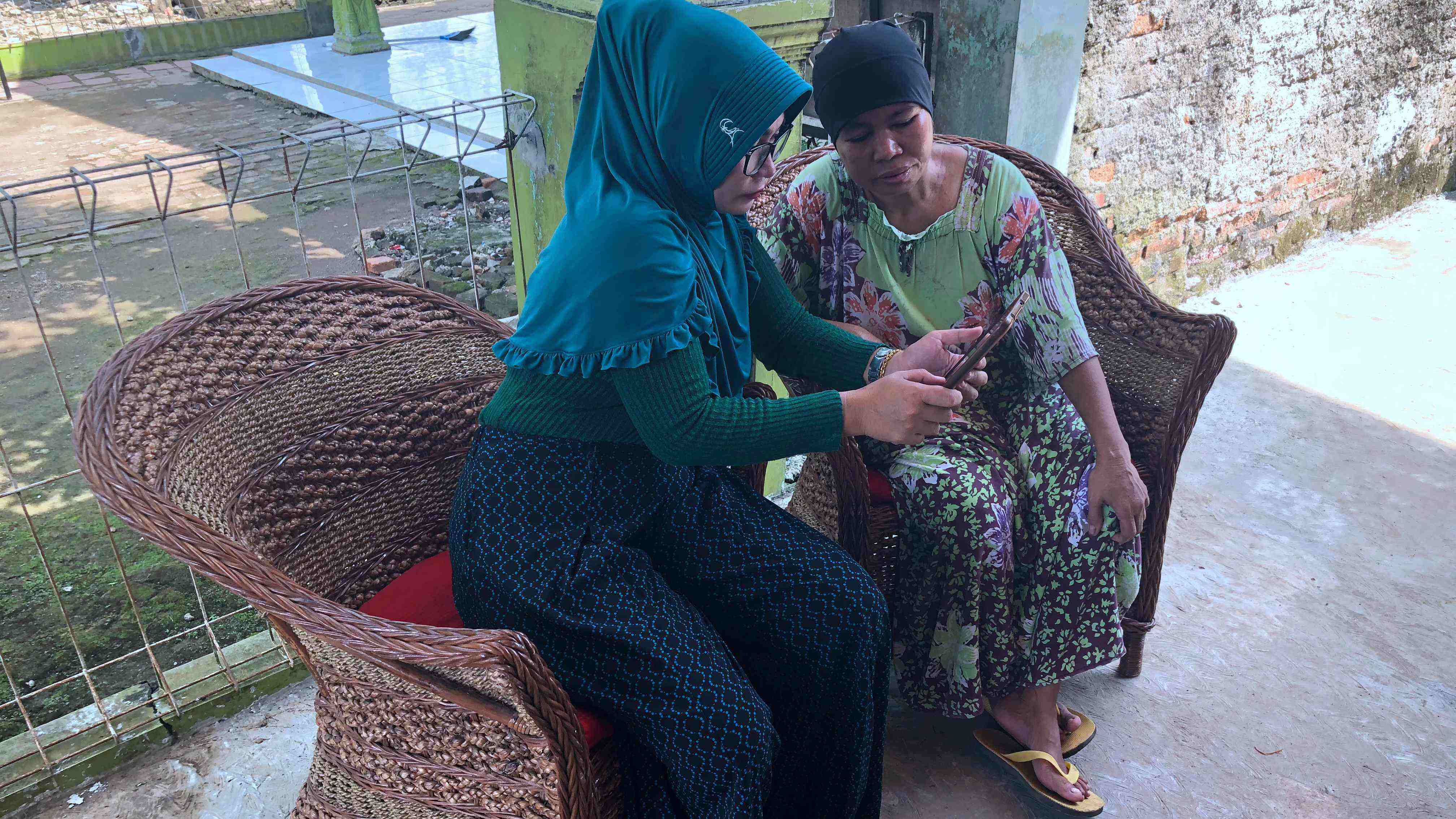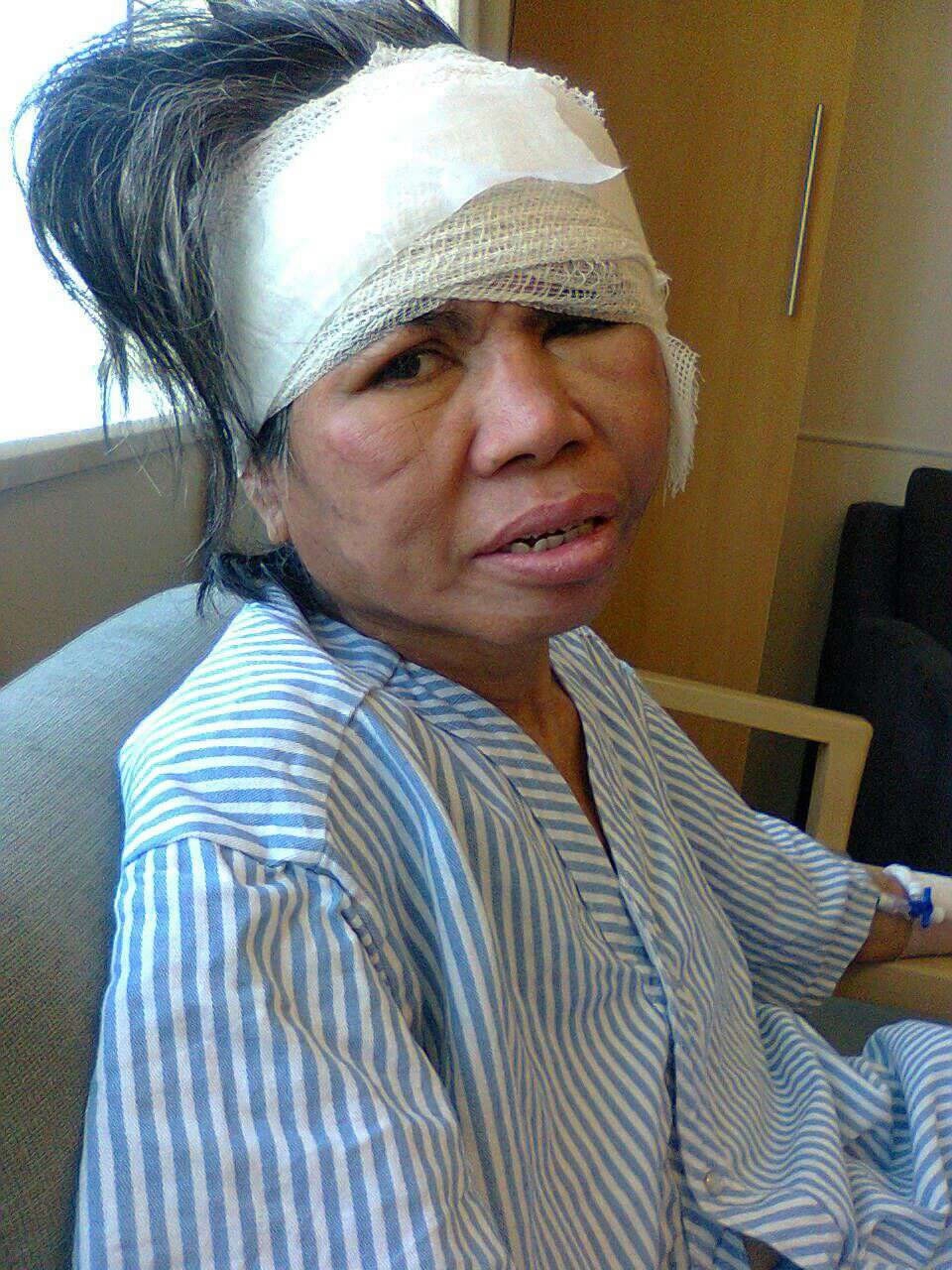
Politics
10:54, 26-Mar-2018
Indonesia to strengthen protection of migrant workers abroad
By Silkina Ahluwalia

As Tayem recalled her experience working as a domestic helper in Qatar, she couldn't stop the tears from streaming down her face.
"My employers would pour hot water on me, rub salt on my wounds and beat me with a hot iron," said the 50-year-old.
That was three years ago before she fled back home to Indonesia. Tayem is still traumatized by the experience. In 2011, she decided to leave her village in West Java to seek employment abroad. A local agent provided her the help she needed to obtain legal work documents and a visa to work as a domestic helper in Qatar.
"I was searching for a steady income. I thought it was a good idea to work outside of Indonesia," said Tayem.
She had high hopes for her job abroad, she dreamt of having a high-paying salary and comfortable living conditions. But what she got was anything but comfortable.

CGTN Photo
CGTN Photo
"My employers were only nice to me for one week. After that, they began to accuse me of stealing. They said I had stolen money from them and hid it in my bathroom. I never did that at all. I worked for one year and two months without any salary."
When a nurse found Tayem badly injured outside of her employer's home, she was rushed to the hospital. She was treated for serious injuries to her back and the side of her face, which swelled to double the normal size.
From then, she immediately got assistance from the Indonesian Ambassador based in Qatar.
Tayem's story is all too familiar for many female migrant workers abroad. Her issue shed a light on the lack of protection provided to migrant workers abroad.

CGTN Photo
CGTN Photo
Indonesia sends more than 6.5 million migrant workers out of the country, where 85 percent of them are women that end up working as domestic helpers. The rest are men who are given jobs in factories and farms across Saudi Arabia, Malaysia and Hong Kong, just to name a few.
Migrant workers have confessed to experiencing long working hours, violence, forced labor and even human trafficking outside of their hometown. Human rights activists are now working hard to urge the government to implement strict regulations to provide better care for them.
Wahyu Susilo has been helping migrant workers and their families obtain their rights. As an executive director for the local NGO, Migrant Care, Wahyu works directly with the migrant workers providing immediate support.
For Wahyu, in countries in the Middle East, culture plays a huge role in this issue.
"In many places in Saudi Arabia and Qatar, people still view domestic helpers as property; they see slavery as common practice. This is an issue that needs to be addressed."
And for that issue to be brought to light, assistance from the government is crucial.
"Our embassies in several countries have started to provide services to Indonesian citizens abroad. But that's not enough, our government should be more active in monitoring migrant workers abroad. They should visit these workers frequently to see what problems they face day to day. Right now, the government always takes action too late."
President Joko Widodo has urged several ministries including the Foreign Ministry and the Manpower Ministry to issue a moratorium against domestic workers being sent to the Middle East and most recently, Malaysia.
This could provide the hope that many migrant workers have been searching for. Until and unless the government takes necessary steps to improve protection against migrant workers, no Indonesian citizens are allowed to take up employment abroad as domestic helpers.
The moratorium is not finalized but it seems promising for future domestic helpers who dream of seeking a better job outside of Indonesia.

SITEMAP
Copyright © 2018 CGTN. Beijing ICP prepared NO.16065310-3
Copyright © 2018 CGTN. Beijing ICP prepared NO.16065310-3